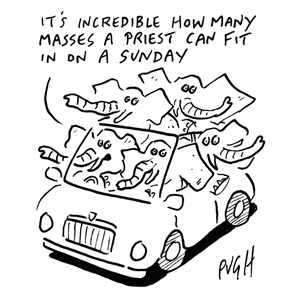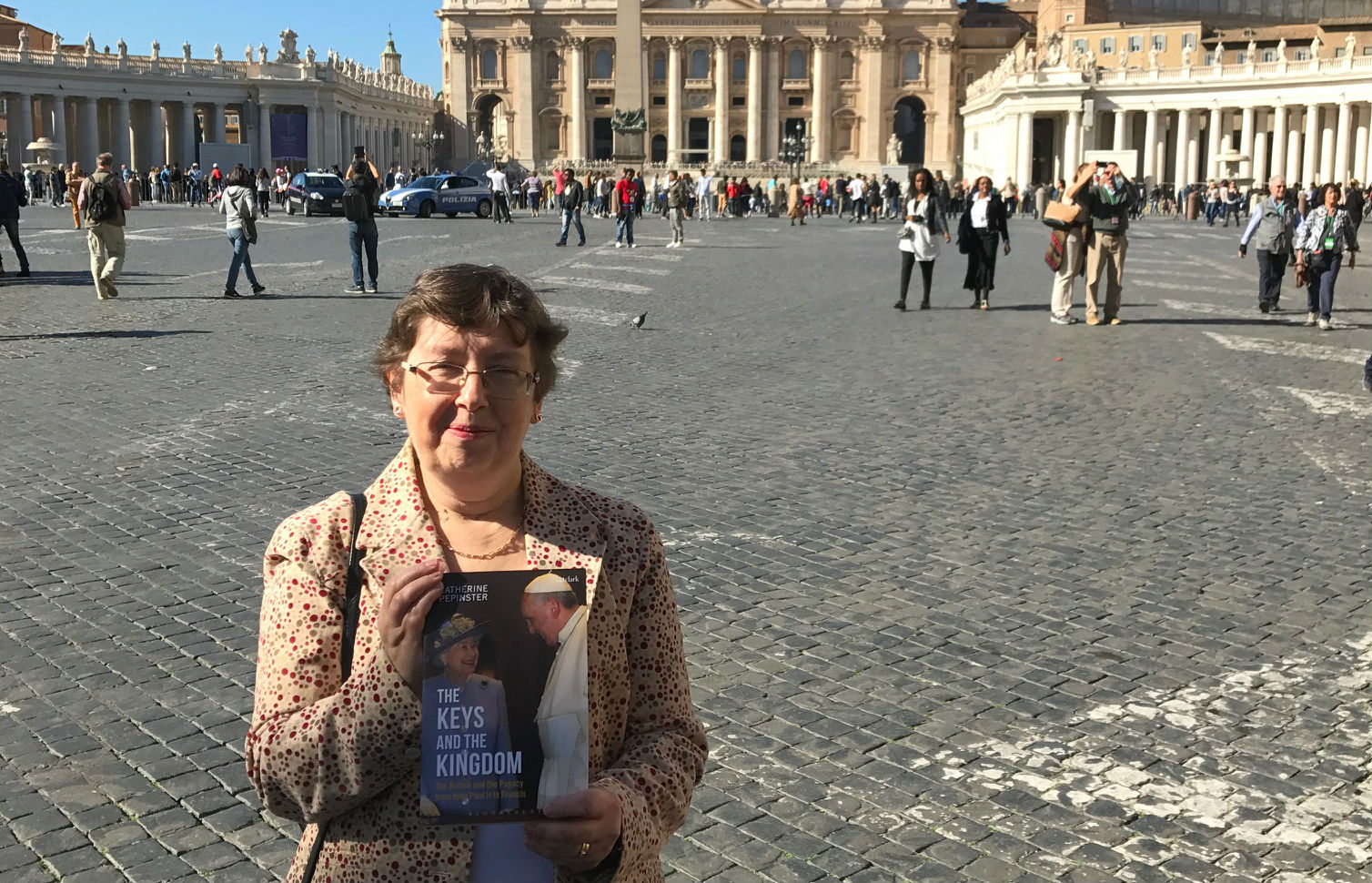A BBC televisions series about the Gunpowder plot has shocked viewers by revealing in graphic detail the violence of Britain’s religious past, depicting the brutal persecution of Catholics during the time that Guy Fawkes and his Catholic gang sought to blow up the Houses of Parliament.
Over 400 years later and the relationship between the British state and the Roman Catholic Church is unrecognisable from those days of bloodshed as a new book written by a former editor of The Tablet, Catherine Pepinster, shows.
“The Keys and the Kingdom” explores Britain’s dealings with the Papacy from John Paul II to Francis and provides in-depth details about this complex relationship, including some surprising areas of collaboration.
Chief among these is how the Foreign Office played a part in the election of Cardinal Jorge Bergoglio when former British Ambassador to the Holy See, Nigel Baker, hosted a reception at his residence for cardinals from across the commonwealth in the run up to the conclave.
They were met that evening by Cardinal Cormac Murphy-O’Connor, himself not able to vote due to age, but who believed the Jesuit Archbishop of Buenos Aires was the ideal candidate to be the next Pope. An impressive networker, the English was keen to impress this upon cardinals about to enter the Sistine Chapel to cast their votes.
The focus of the reception that evening was on cardinals from poorer countries, who in the 2005 conclave which elected Pope Benedict XVI did not feature prominently in the behind the scenes dinners and meetings that take place before a papal election.
In her book, Pepinster reveals that Cardinal George Pell of Australia, and Cardinal Marc Ouellet of Canada were left off the guest list that evening. Both of them are also renowned as more conservative figures in the college of cardinals. She also explains that at one point the ambassador and his staff even left the room to allow for private discussions to take place.
“It left the cardinal able to have a few minutes of totally confidential chat with the red hats from the south” Pepinster explains.
Speaking to The Tablet in Rome, she says that this meeting was “highly significant” and played some part in ensuring that Bergoglio stepped out onto the balcony of St Peter’s a few days later as Pope Francis.
“They [the embassy] provided Cardinal Cormac with a forum, which helped smooth the way for the election of Bergoglio,” she said.
But “the irony”, Pepinster explains, is that the election of an Argentinian as Pope raised the question of the Falkland Islands, British overseas territory and over which war was fought with Argentina in 1982.
As Archbishop of Buenos Aires, Bergoglio had talked about “Los Malvinas” being “usurped” by the British, and this led to the Foreign Office making it clear to the Holy See - following Pope Francis’ election - that the Falklands Islands are British.
It was also Britain’s war with Argentina Falklands that nearly led to the cancellation of John Paul II’s visit to Britain in 1982 with the Holy See appealing to then Prime Minister Margaret Thatcher for peace.
Today, Pepinster describes the relationship between the Papacy and Britain as a “healthy one” although tensions still remain.
“They have found areas of common ground, particularly on the world stage,” she says. “But in Britain Catholic teaching on matters of sexual morality often meets resistance.”
She went on: “While Theresa May is sympathetic to the Church and has a strong Christian faith there are some in the Foreign Office who do not fully understand the Catholic Church. Senior diplomats don’t see it as important.”
The book reports Cardinal Vincent Nichols, Archbishop of Westminster, saying that the Foreign Office didn’t know if the Holy See is “China or San Marino” while Pepinster stresses civil servants are unsure under which internal department in the Foreign Office the British embassy to the Vatican should come under.
There is something of a disconnect between the ignorance of officialdom and the popular appeal Popes still retain in Britain: it is something which Pepinster says is down to both the charismatic nature of the of papacy and the British respect for tradition.
The visit of Benedict XVI to Britain in 2010 was a good example. Before he arrived, there was a slew of negative publicity and a highly embarrassing leaked memo from written by Foreign Office officials suggesting the Pope visit an abortion clinic and launch a new brand of condoms.
In the end the trip was arguably the most successful of Benedict XVI’s papacy. Pepinster points out how he drew large crowds and impressed the British establishment with his thought-provoking speech at Westminster Hall.
She also points out that Francis is a extremely popular figure in the UK, with his humility and concern for the poor and marginalised winning many people over.
While the relationship between Britain and the Papacy is always going to have tensions, Pepinster says the days when British Catholics were treated with suspicion has largely disappeared. Most of the opposition is from hard line secularists.
“The preacher of the papal household, Fr Raniero Cantalamessa, told the Church of England’s General Synod that Christians shouldn’t be ‘prisoners of the past’,” she says. “And I don’t think we are.”
PICTURE: Catherine Pepinster in Rome for the launch of The Keys and the Kingdom ©Christopher Lamb



 Loading ...
Loading ...